Worrying about the falling price of coconuts
We happened to meet and talk with Pham Dinh Ngai, born in 1989, at a conference held in Hanoi. When talking about coconut products, a tree that is closely associated with people in coastal areas, especially in coastal provinces in the Mekong Delta, Pham Dinh Ngai said: "In 2018, when the price of coconut in Tra Vinh province was very low, at that time 1,200 coconuts were only sold for 2 million VND (1,600-1,700 VND/fruit). Therefore, it was very difficult for farmers to live with coconut trees. I thought and found a new direction to sustainably develop this special fruit. The direction at that time was to increase the economic value of coconut trees, deep processing, and diversify products. But when I started researching, I realized that coconuts in the West, due to saltwater intrusion, often yield much lower than expected when they bear fruit".
Struggling, not finding the "key" to the output, Pham Dinh Ngai suddenly discovered that in the Philippines and some countries, people have switched to collecting coconut nectar, helping to increase economic value, while in Vietnam there is no business doing so. Pham Dinh Ngai formed a new idea to help coconut farmers in his homeland. Coconuts in Tra Vinh are grown a lot by Khmer people. When Pham Dinh Ngai shared his concerns with his wife, Ms. Thach Thi Chal Thi - Master of Food Technology, she immediately supported her husband's idea. Researching from the market perspective, regional agricultural products are a consumption trend in many countries. In 2018, Pham Dinh Ngai decided to quit his job in Ho Chi Minh City to return to his hometown with his wife to start a business from coconut nectar. The young couple spent nearly two years learning about coconut nectar, how to collect nectar, how to process the product, even the process of building a factory, developing the market... The land in the West is heavily affected by salinity. If the salinity is 15 parts per thousand, the coconut will shrivel or fall off, but at a salinity of 5 parts per thousand, the coconut tree will still flower, meeting the need for nectar collection. Therefore, the conversion from fruit collection to nectar collection is completely suitable for the salinity intrusion situation, especially in the coastal area of Tra Vinh, people can still create a livelihood...
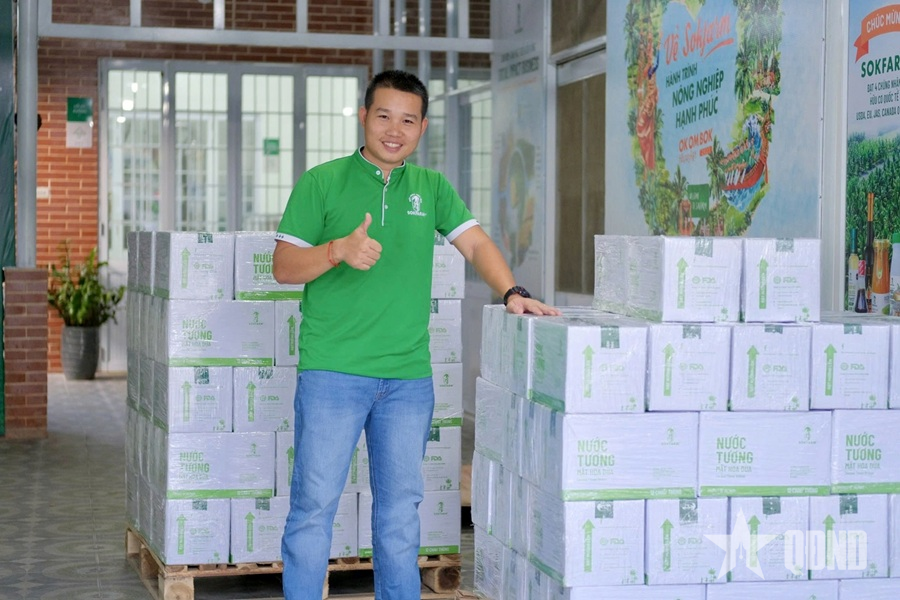 |
| Pham Dinh Ngai with the product before leaving the factory. |
With the decision to return to his hometown to start a business from coconut nectar, Pham Dinh Ngai also had to face countless difficulties and challenges at that time. He did not expect that he would encounter disagreement from his hometown people, because up to now, farmers have grown coconuts for the fruit, not for the honey. “Everyone thought that I was going to study somewhere far away to do nonsense. In particular, they said that my work could destroy the coconut gardens. However, I knew that I would help the farmers, so I was determined...”, Mr. Ngai confided.
At that time, Pham Dinh Ngai could not remember how many liters of honey he had poured out to find the formula for the product. After nearly two years of researching the method of processing coconut nectar, he finally brought the first product to the market. Coconut nectar is a low-calorie sugar but rich in minerals. If processed at 55 degrees Celsius, it will help retain all the nutrients and natural flavors, suitable for dieters, diabetics, athletes and those who recover well. Every 25 days, the coconut tree will produce 1 flower, a year continuously producing from 13 to 16 flowers. Coconuts can harvest nectar all year round, on average each year the coconut tree can collect about 250-300 liters of nectar. Currently, the couple has a 500m2 factory, designed to produce and process 60 tons of fresh coconut nectar per month, meeting ISO 2018 standards, the name of the production facility is Sokfarm. Mr. Ngai explained: Sok in Khmer means happiness and Sokfarm means happy agriculture . Sokfarm's coconut nectar products include 7 types: Coconut nectar drink, concentrated coconut nectar, coconut sugar, coconut nectar vinegar, fermented coconut nectar, cocoa beans, coconut soy sauce. Currently, 85-90% of Sokfarm's coconut nectar products are consumed in the domestic market, 10-15% of products are exported to the world market and have been certified as high-quality Vietnamese goods.
Happy farming
Pham Dinh Ngai said that in the journey to increase the value of his coconut trees, he and his wife were not alone but received a lot of support from agencies, departments and branches of Tra Vinh province, the Department of Agriculture and Environment of the province. These agencies have supported him and Sokfarm a lot in forming a mindset about chain linkage, production, deep processing, introduction and support for product consumption. Currently, Sokfarm organic concentrated coconut nectar has achieved a 5-star OCOP product. Pham Dinh Ngai said that for a product to be recognized as a 5-star OCOP product, the mandatory condition and criterion is that the product must be exported to the world market. Sokfarm's coconut nectar products are currently produced using vacuum concentration technology. He has built a brand for export and registered the product for quality inspection in 2021. Finally, Sokfarm's products have convinced the Japanese management agency when meeting more than 300 quality standards on food safety. Currently, Sokfarm has cooperated with 35 farming households growing 20 hectares of coconut gardens to purchase 45 tons of coconut nectar/month. From this amount of raw materials, Sokfarm produces an average of 10-15 tons of finished products per month. Mr. Ngai has put Sokfarm's products on the OCOP 24/7 e-commerce platform, which specializes in trading Vietnamese OCOP products and the trading platforms Tiki, Lazada, Shopee...
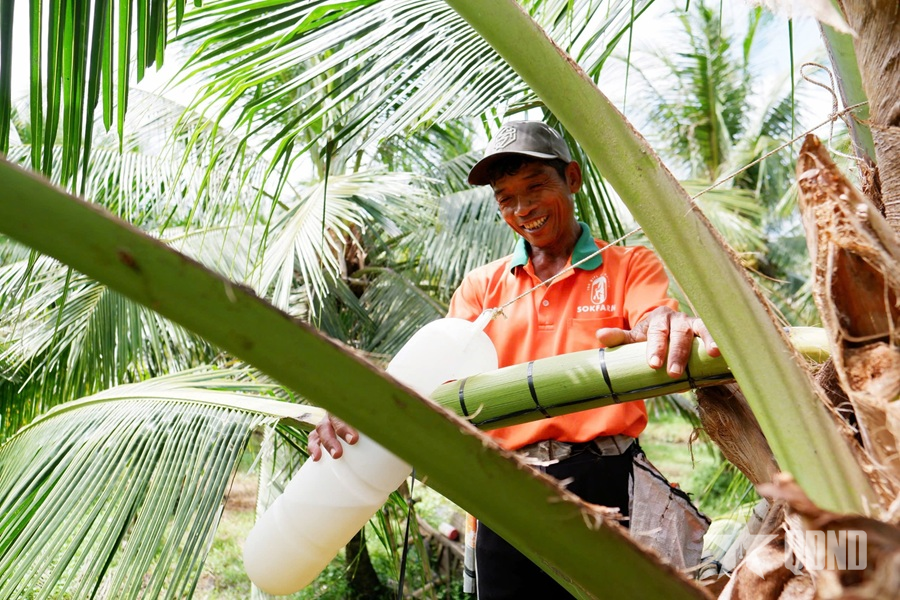 |
| People harvest coconut nectar. |
Under the lush green coconut trees of the Mekong Delta, Pham Dinh Ngai told the story of the gentle and simple farmers of Tra Vinh to Vietnamese consumers and international friends. He said that the Sokfarm organic concentrated coconut nectar product, which achieved the 5-star OCOP product in 2023, is the pride not only of young people like Pham Dinh Ngai but also a product of his hometown Tra Vinh. In the coming time, he will expand the factory, research and process more products from coconut nectar to about 30 products, not just 7 products. By 2030, Sokfarm plans to build a chain with 500-700 farming households in Tra Vinh province to develop a stable raw material area.
With his enthusiasm and love for coconut trees and products made from coconut nectar, Pham Dinh Ngai has been awarded many awards and certificates of merit, such as: First prize in the 2020 Rural Youth Creative Startup Project; Top 30 Social Impact Business Organizations (SIBs) recovering after the Covid-19 pandemic within the framework of the ISEE-Covid project under the United Nations; the only enterprise in Vietnam to win the ASEAN BUSINESS AWARDS 2022 in the category of "Inclusive Development Enterprise"; Community Entrepreneur Award - Blue Venture Award 4 in 2022; Vu A Dinh Award 2022 - Spring Journey to the Forest and the Sea; The 16th Luong Dinh Cua Award in 2021 - Outstanding Young Farmer; Certificate of Merit from the Prime Minister for outstanding achievements in studying and following Ho Chi Minh's ideology, morality and style in the period 2016-2021.
Article and photos: NGUYEN KIEM
Source: https://www.qdnd.vn/phong-su-dieu-tra/cuoc-thi-nhung-tam-guong-binh-di-ma-cao-quy-lan-thu-16/nguoi-nang-tam-gia-tri-cho-cay-dua-834249



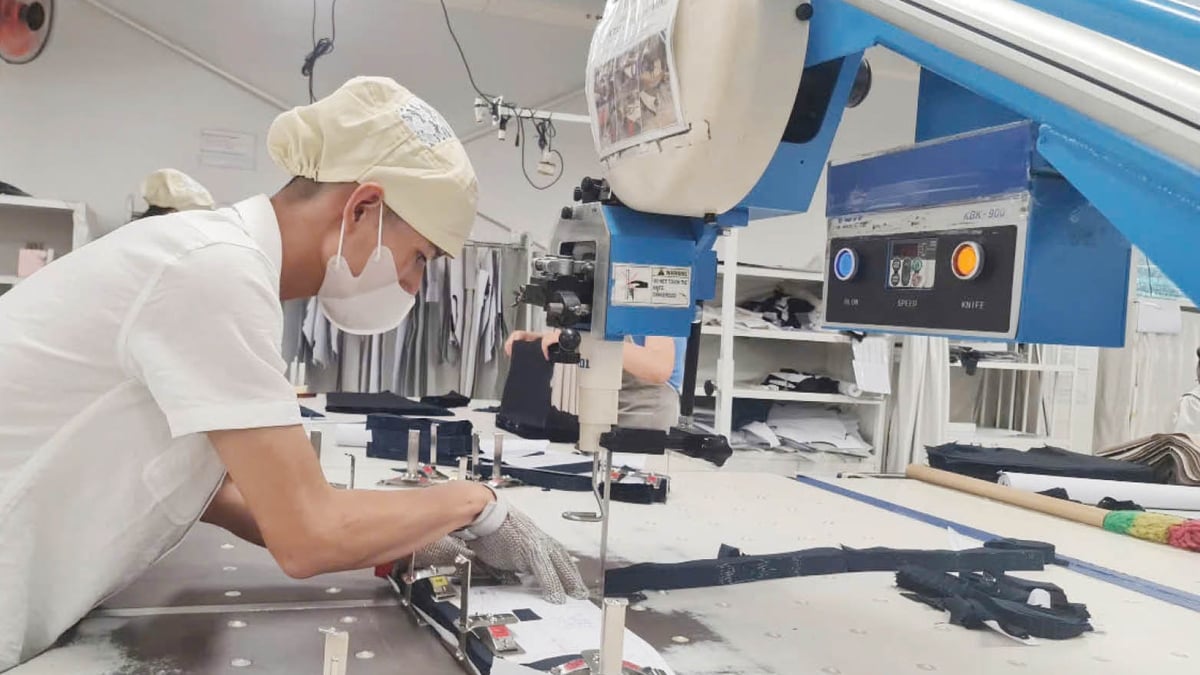
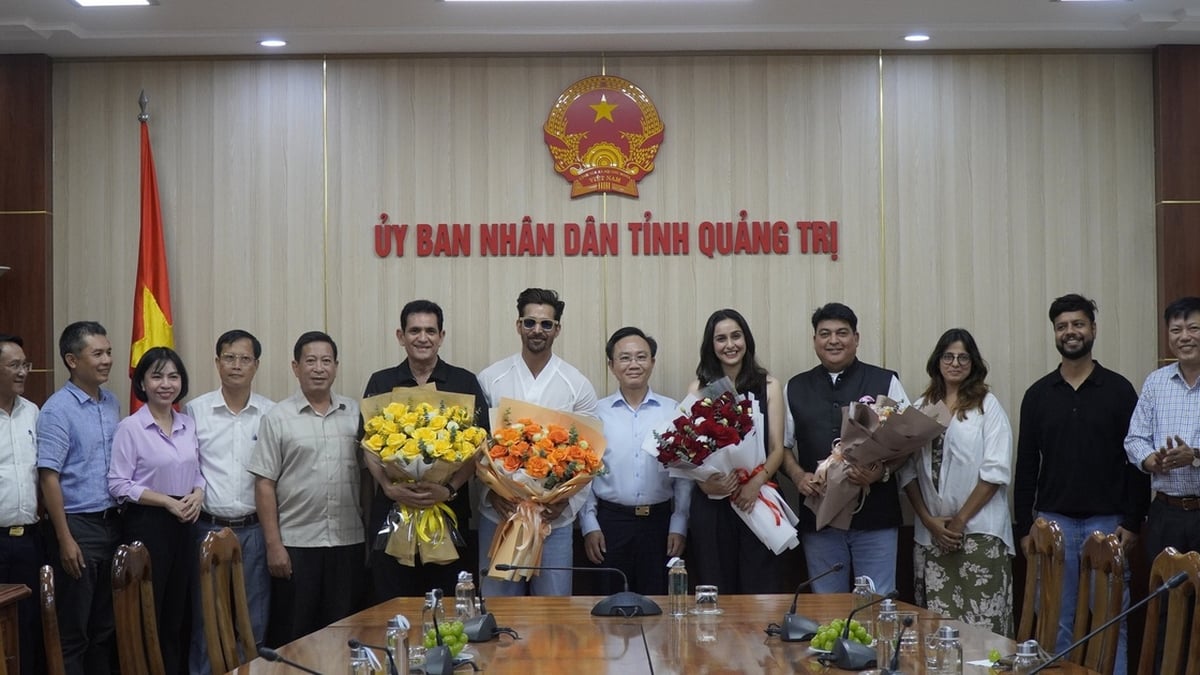
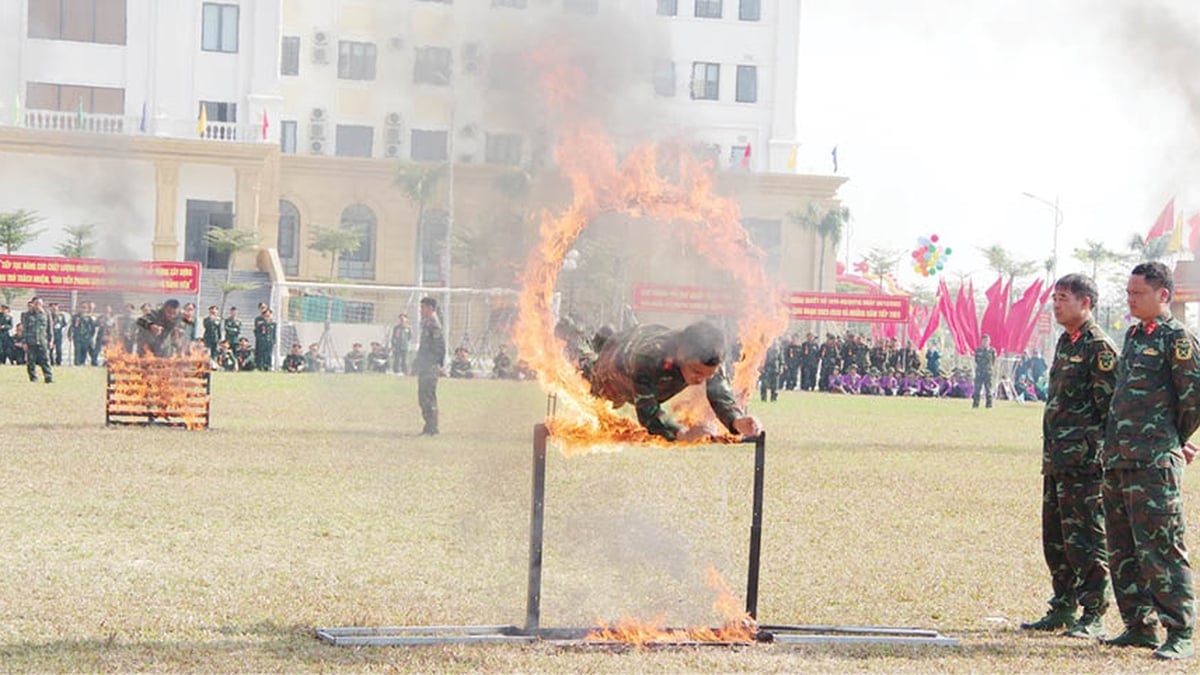
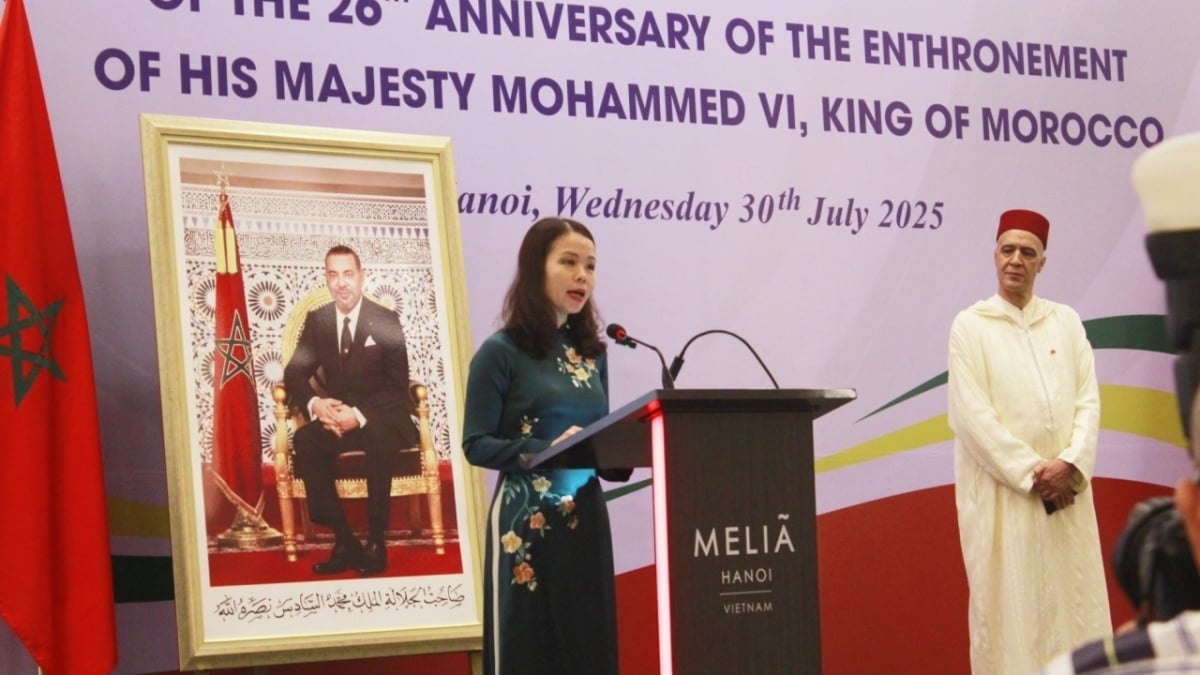
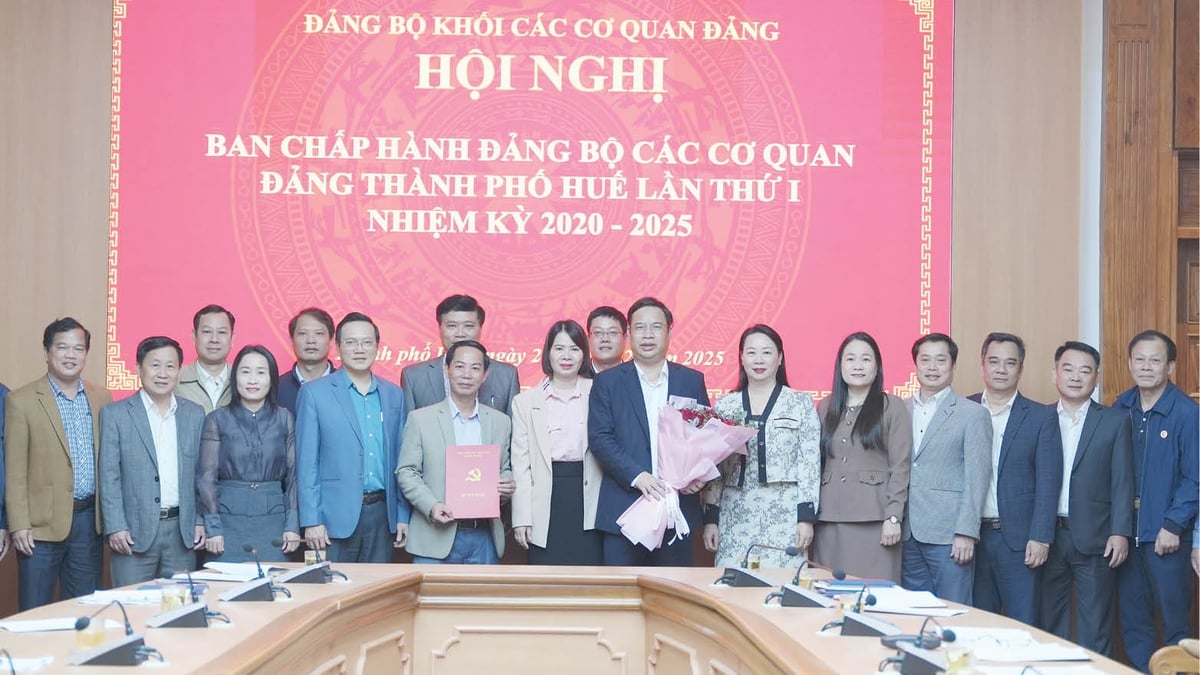
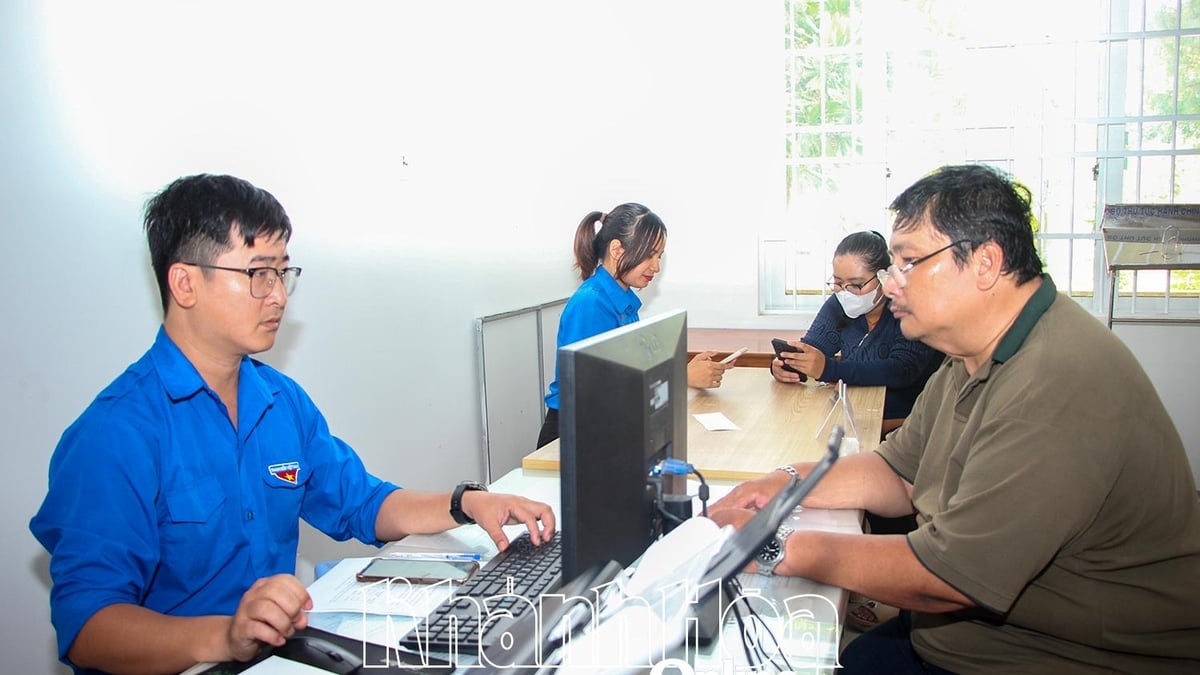


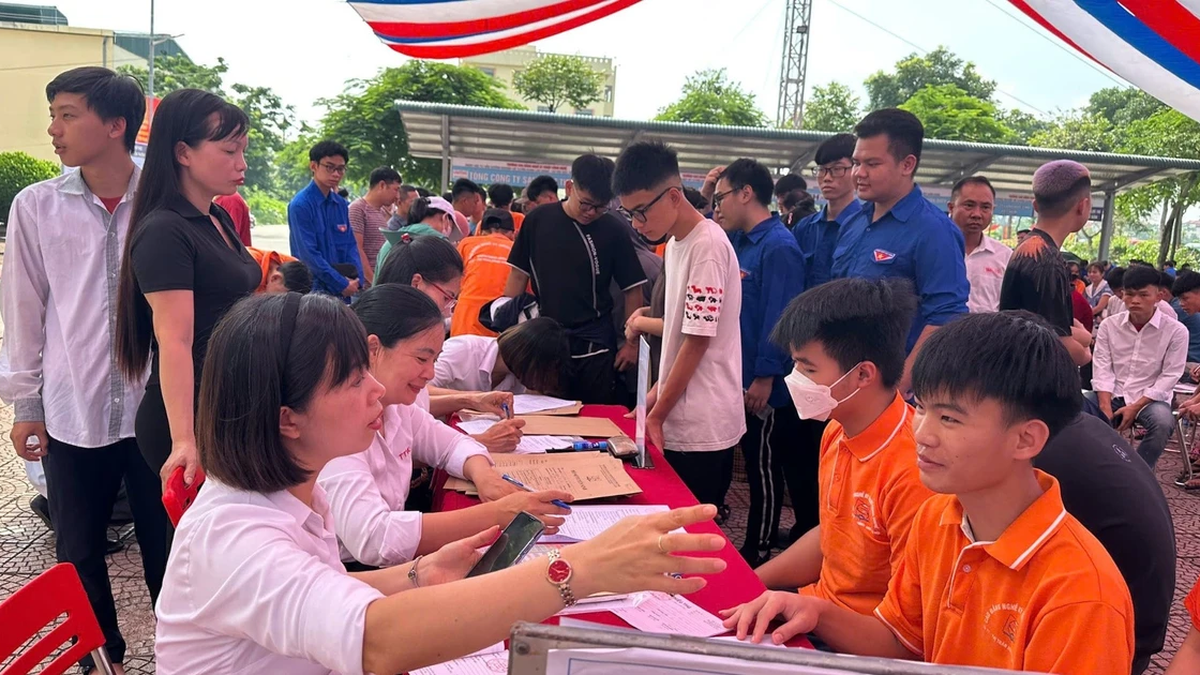































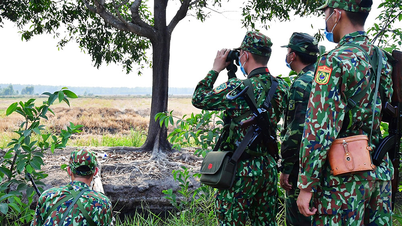











![[Maritime News] Container shipping faces overcapacity that will last until 2028](https://vphoto.vietnam.vn/thumb/402x226/vietnam/resource/IMAGE/2025/7/30/6d35cbc6b0f643fd97f8aa2e9bc87aea)










































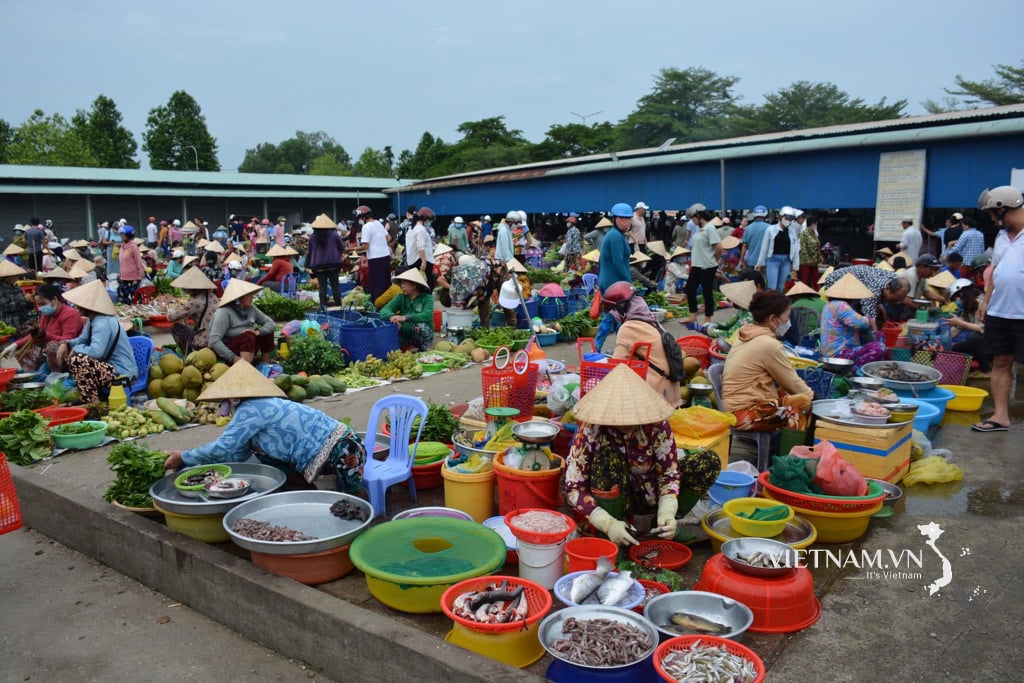
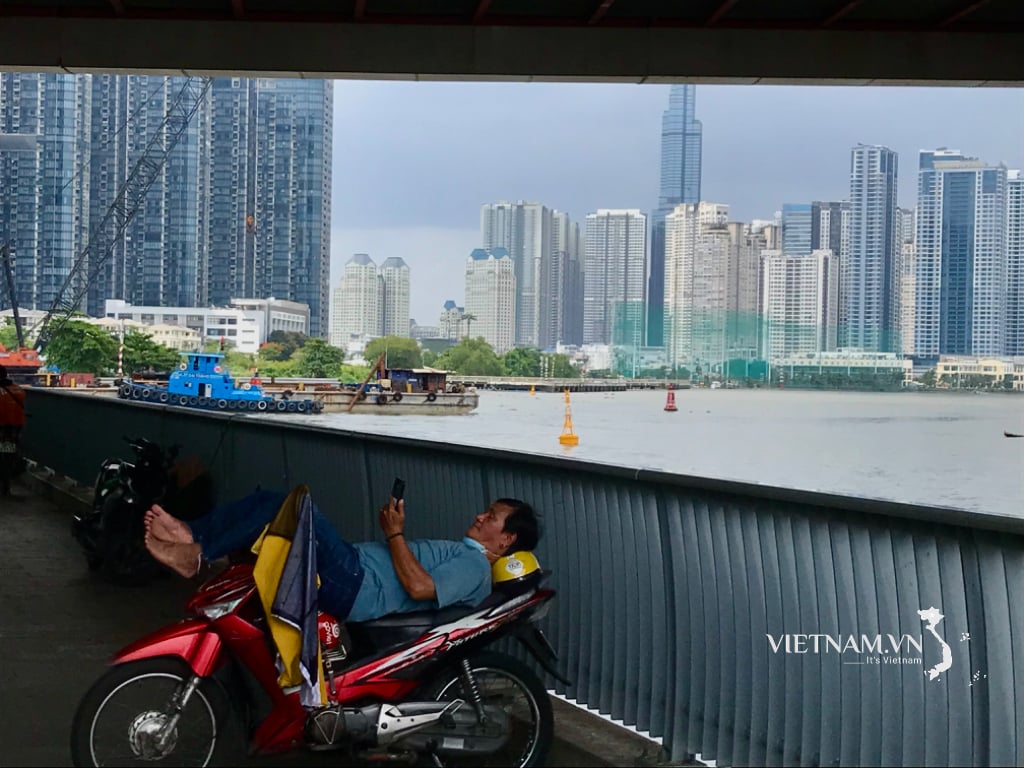

Comment (0)